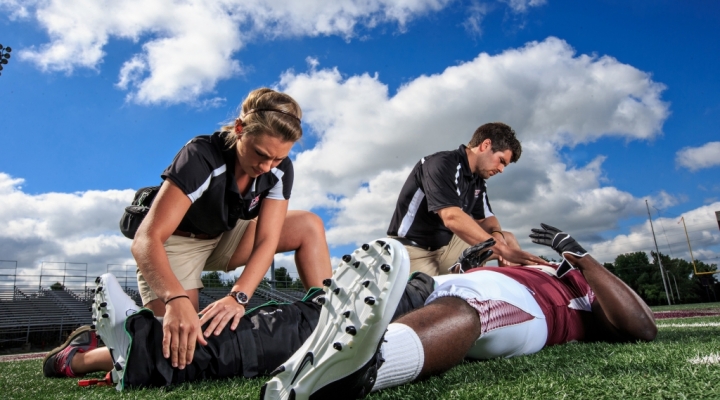
Legislation that would suspend public school coaches if they allow players to return to a game after suffering a concussion seems to have its heart in the right place, but may be a tad overreaching as we continue to change the sports culture and educate players, coaches and parents about head injuries.
Certainly, we aren’t advocating for a win-at-all-costs mentality that unfortunately sometimes permeates even youth sports, but at the same time, we also don’t think it’s fair to punish coaches who might not have the resources available to properly diagnose a concussion. We’d like to think coaches should get the benefit of the doubt that they aren’t putting our kids in danger of potentially life-altering head injuries.
With that said, concussions — especially in youth sports — are a serious issue that warrant serious discussions and serious consequences if it’s discovered that coaches are endangering children by deliberately letting a concussed athlete play. We’re far more informed about head injuries than ever, and if coaches are letting players get back in the game knowing they’ve suffered head injury, we think the discipline should be quick and harsh. A suspension might not be punishment enough.
If nothing else, the legislation proposed by Del. Mark Chang, an Anne Arundel County Democrat, is a good conversation starter.
Perhaps that conversation should steer more toward making sure every school in Maryland has a certified athletic trainer available who can diagnose concussions, rather than leaving it up to coaches who know Xs and Os, but don’t have the medical training to diagnose a concussion accurately.
Carroll County is fortunate in that each high school has a designated trainer assigned to it. That isn’t necessarily the case elsewhere in the state. Greg Penczek, president of the Maryland Athletic Trainers Association, told The Baltimore Sun that about 61 percent of high schools in Maryland have trainers.
The other option is getting coaches better educated about concussions and testing their knowledge. Currently, coaches must attend training courses on head injuries, but there is no guarantee they are paying attention or retaining the information. Dr. Robert G. Graw, founder of the Crofton-based HeadFirst Sports Injury and Concussion Care Centers, said coaches should have to pass a rigorous test and get certified proving they can recognize symptoms as well as a trainer. We agree that coaches should have to get certified, but that’s not a replacement for having an athletic trainer.
Another benefit to having a trainer is that the coach has a medical professional to point to when, inevitably, a parent insists their son or daughter go back into the game.
Some will say coaches should simply follow the “when in doubt, keep them out,” philosophy, but part of the problem with concussions is the symptoms are often not obvious, the player may not immediately feel the affects, and it doesn’t take a bone-jarring hit to suffer one. This is why the more people you have on the sidelines who know what to look for the better.
It’s important we do everything we can to keep young athletes’ still-developing brains healthy. But before we start punishing coaches, let’s make sure they have as much information and resources available to them to make smart decisions about their players.